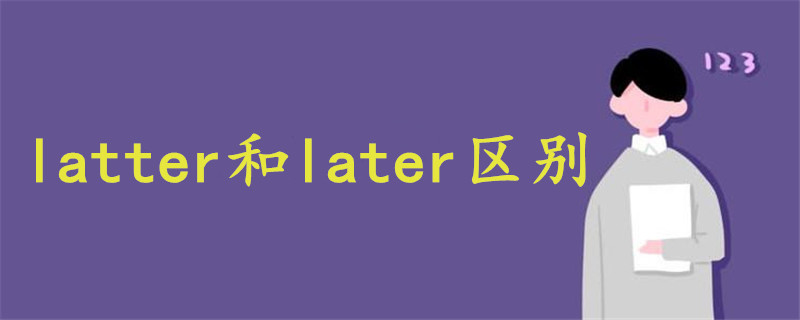latter和later的区别:指代不同、词性及用法不同、侧重点不同。latter可作形容词和名词,含义为后者的、末尾的、最后一位,表示事物的先后;later可作副词和形容词,含义为以后、其后、以后的、晚年的,是指事物本身发展过程中的某一时间单位。

一、latter的含义及用法介绍
1、可作形容词,含义为后者的;(系列中)最后的,末尾的;后半期的;后面的。
例句:The latter point is the most important.
后面提及的那一点是最重要的。
He is getting into the latter years of his career...
他正步入职业生涯的后半程。
I lean toward the latter view.
我倾向于后者的观点。
2、还可作名词,含义为后者;(系列中)最后一位,末位。
例句:He presented two solutions. The latter seems much better.
他提出了两个解决方案,后一个看起来要好得多。
He tracked down his cousin and uncle. The latter was sick.
他追查到了堂弟和叔叔的下落,发现叔叔这时正在病中。
I would unhesitatingly choose the latter option
我会毫不犹豫地选择后者。
二、later的含义及用法介绍
1、可作副词,含义为后来;以后;其后;随后;(年轻人告别时用的)再见。
例句:I met her again three years later.
三年后我又遇见她了。
We're going to Rome later in the year.
我们年内晚些时候要到罗马去。
2、还可作形容词,含义为后来的;以后的;接近末期的;晚年的。
例句:This is discussed in more detail in a later chapter.
在后面的一章中对这一点作了更详细的讨论。
She found happiness in her later years.
她在晚年才寻得幸福。










